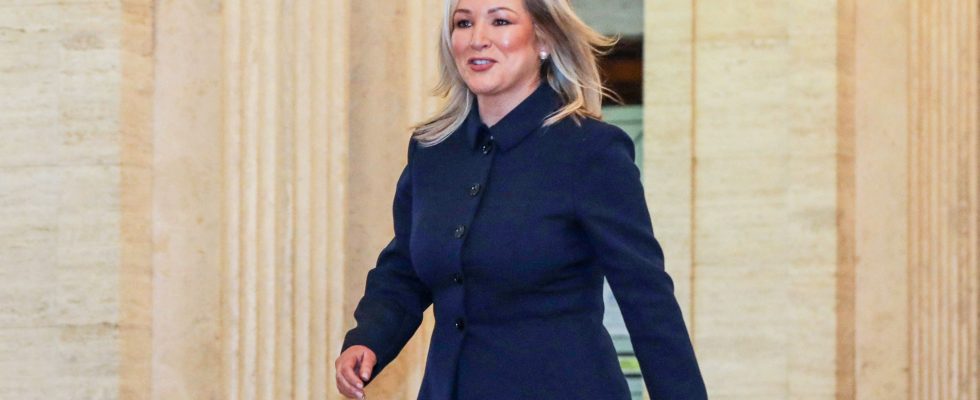A page turns. After two years of political blockage linked to post-Brexit trade arrangements in the British province, the Northern Irish Parliament – also called the Stormont Assembly – restarted this Saturday February 3.
This was followed by the official appointment of the first republican head of local government, Michelle O’Neill, in favor of the unification of Ireland. This is a historic turning point, as this province has been marked by three decades of bloody conflict between the republicans and nationalists on one side, and the unionists on the other. The latter remain committed to maintaining Northern Ireland within the United Kingdom.
“This is a historic day and represents a new era,” said Michelle O’Neill. “As Prime Minister for All, I am determined to lead positive change for everyone, and work together with others to advance our society in a spirit of respect, cooperation, and equality,” she said. she assured.
For the new Prime Minister, it would have been “unimaginable for the generation of (her) parents” for a nationalist to lead the local executive. Sinn Fein came first in the May 2022 elections, an unprecedented shift for this formation which was once the political showcase of the IRA (Irish Republican Army).
Under co-governance resulting from the 1998 peace accords, Unionist Emma Little-Pengelly was chosen as Deputy Prime Minister. Members of the Stormont Assembly also elected Unionist Edwin Poots as speaker.
End of boycott by unionists
Subsequently, the local government, responsible for areas such as housing, health, employment, agriculture and the environment, will be formed. Current affairs were until then managed by London due to this blockage which caused exasperation among the population.
After months of negotiations with the British government, unionists from the Democratic Unionist Party (DUP) announced their decision this week to end their boycott. This led to the paralysis of the Assembly and the local executive, where power is shared between unionists and nationalists.
As a reminder, two years ago to the day, the Unionist Party announced that it was withdrawing from local institutions to protest against post-Brexit trade arrangements, in which it denounced a threat to the position of Northern Ireland within the United Kingdom.
But for certain unionist activists, viscerally attached to the British province’s belonging to the United Kingdom, the DUP’s renunciation of the boycott is seen as a “capitulation”. In their eyes, Northern Ireland remains separated from the rest of the United Kingdom by a border which hinders trade with Great Britain. “If there must be a border somewhere, it should be between Northern Ireland and the Republic of Ireland, this is a fundamental principle,” insist these activists.
